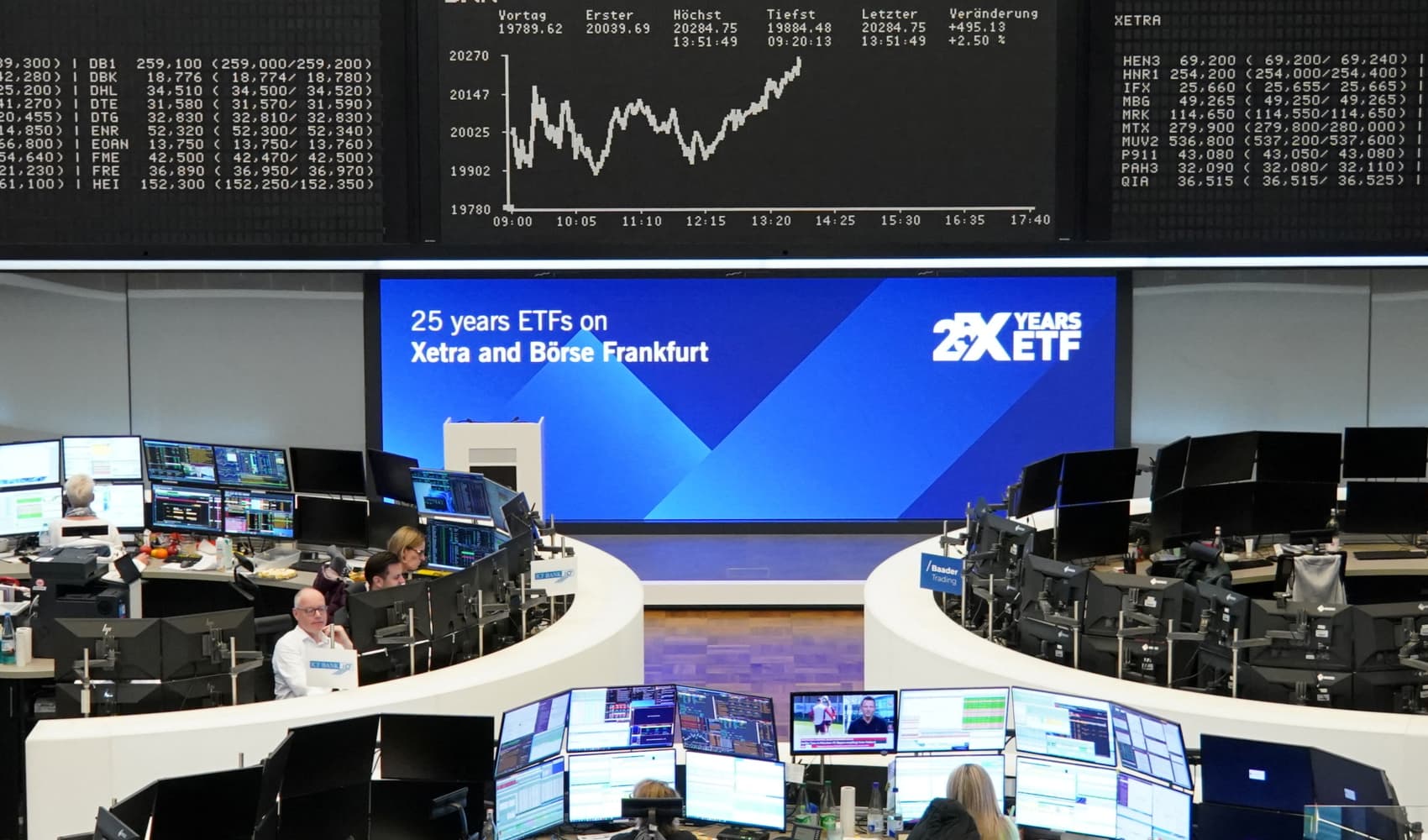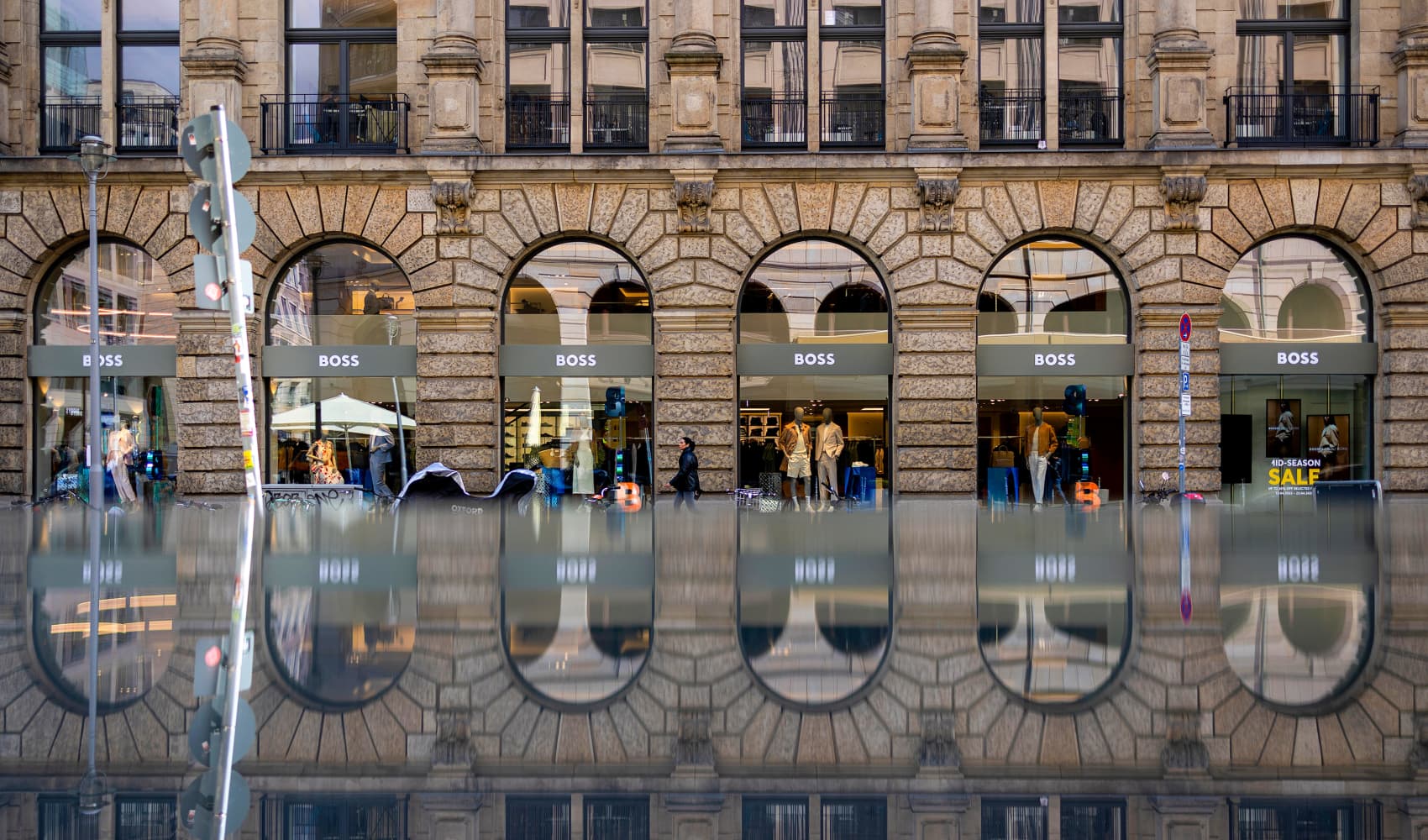Europe Stocks: FTSE Record High Despite DAX Dip - Here's Why!
European Markets Rollercoaster: DAX Gains, FTSE 100 Soars Despite Overall Dip
Introduction: A Day of Mixed Signals
European stock markets presented a mixed bag on Tuesday, offering investors a bit of everything – gains, losses, and political intrigue. While the overall trend pointed downwards, certain sectors and individual indexes bucked the trend, providing glimmers of hope and opportunities for savvy investors. Think of it like a garden – some flowers are blooming, others are wilting, but the garden as a whole is still evolving.
Overall Market Performance: A Slight Dip
The pan-European Stoxx Europe 600 index, a broad measure of European stock performance, closed 0.18% lower. This ended a remarkable run of 10 consecutive sessions of gains. Why the dip? Well, several factors were at play, including corporate earnings reports, German political developments, and the ever-shifting landscape of U.S. trade policy. It's like trying to predict the weather – multiple variables constantly interact, making it difficult to forecast with certainty.
Sector Performance: Healthcare Down, Oil Up
Sector-wise, the day was a story of contrasting fortunes. Healthcare stocks took a hit, falling by 1.09%, while oil and gas companies enjoyed a boost, rising by 0.92%. This divergence highlights the sensitivity of different sectors to prevailing market conditions. Perhaps healthcare was impacted by regulatory concerns, while oil and gas benefited from rising energy prices – just speculation, of course, but it illustrates how specific industries can react differently.
The UK's FTSE 100: Defying Gravity
Against the backdrop of a slightly downbeat European market, the UK's FTSE 100 index managed to eke out a gain of 0.01%, nudging into positive territory late in the session. This extended its record-breaking streak of daily gains, a remarkable feat demonstrating the resilience of the London market. It's like a marathon runner finding a second wind – the FTSE 100 found the energy to push through to the finish line.
German Politics: Merz Elected Chancellor – DAX Reacts
One of the key events influencing European markets was the election of Friedrich Merz as Chancellor of Germany. While the initial reaction may have contributed to some losses earlier in the session, the DAX ultimately pared those losses, suggesting a cautious but ultimately positive sentiment towards the new political leadership. But what does this mean for the German economy?
Impact on German Economy: A Wait-and-See Approach
The election of a new chancellor inevitably brings uncertainty, at least in the short term. Investors are keen to see what policies Merz will implement and how they will impact the German economy. Will he prioritize fiscal responsibility? Will he focus on boosting growth? These are the questions on everyone's minds. It's like watching a new TV show – you have to wait to see if it lives up to the hype.
Corporate Earnings: A Mixed Bag of Results
The corporate earnings season is in full swing, and the results have been a mixed bag, contributing to market volatility. Some companies have exceeded expectations, while others have fallen short, leading to fluctuations in their stock prices. Analyzing earnings reports is crucial for understanding the health of individual companies and the overall economy.
Hugo Boss: Beating Expectations
One notable performer was Hugo Boss, which posted better-than-feared first-quarter sales. This positive surprise boosted investor confidence and likely contributed to the company's share price increase. It's always good to see a well-known brand perform well – it gives a sense of stability in a turbulent market.
Zalando: Confirming Forecasts
Zalando, the online fashion retailer, also delivered positive news, beating estimates for first-quarter sales and confirming its 2025 forecast. This demonstrates the continued strength of e-commerce and the ability of Zalando to capture market share. Online shopping is here to stay, it seems!
Mergers and Acquisitions: DoorDash and Deliveroo
The market was also abuzz with merger and acquisition activity, most notably DoorDash's planned acquisition of British food delivery firm Deliveroo in a $3.9 billion deal. This move highlights the growing competition in the food delivery sector and the desire of companies to expand their reach and market share. Is this a sign of things to come?
Impact on Food Delivery Market: Consolidation Ahead?
The DoorDash-Deliveroo deal could signal a wave of consolidation in the food delivery market. As competition intensifies, companies may seek to merge or acquire rivals to gain a competitive edge. This could lead to fewer, larger players in the market, potentially impacting prices and consumer choice. Time will tell!
US Trade Policy: Uncertainty Looms
Uncertainty surrounding U.S. trade policy continues to weigh on European markets. Any changes to trade agreements or tariffs could have significant implications for European businesses that rely on exports to the U.S. This is like a shadow hanging over the market – always present, always a potential threat.
The Eurozone Economy: A Delicate Balance
The Eurozone economy remains in a delicate balance, with some countries experiencing stronger growth than others. High inflation and rising interest rates pose challenges, and the ongoing war in Ukraine adds further uncertainty. Navigating these challenges will be crucial for the Eurozone's economic future.
Inflation and Interest Rates: A Double Whammy?
Rising inflation and interest rates are a major concern for European economies. High inflation erodes purchasing power, while rising interest rates increase borrowing costs for businesses and consumers. This combination can stifle economic growth and lead to a slowdown. It's a bit like being stuck between a rock and a hard place.
Investment Strategies: Navigating the Volatility
In such a volatile market, it's important to adopt a well-thought-out investment strategy. Diversification, long-term investing, and a focus on value stocks can help mitigate risk and potentially generate returns. Remember, investing is a marathon, not a sprint!
Diversification: Spreading the Risk
Diversifying your portfolio across different asset classes, sectors, and geographic regions is crucial for reducing risk. By spreading your investments, you can minimize the impact of any single event on your overall returns. Don't put all your eggs in one basket!
Future Outlook: Cautious Optimism
Looking ahead, the outlook for European stock markets is one of cautious optimism. While challenges remain, there are also opportunities for growth. Monitoring economic data, political developments, and corporate earnings will be essential for making informed investment decisions.
Conclusion: Key Takeaways
So, what did we learn today? European markets closed lower, but the FTSE 100 defied the trend. German politics saw a change in leadership, and corporate earnings painted a mixed picture. U.S. trade policy and Eurozone economic challenges continue to loom large. Ultimately, navigating these complexities requires a well-informed and disciplined investment approach. Keep an eye on the market, do your research, and remember that investing is a long-term game.
Frequently Asked Questions (FAQ)
What factors contributed to the overall decline in European stock markets?
Several factors influenced the market's performance, including corporate earnings reports, German political developments following the election of Friedrich Merz as Chancellor, shifting U.S. trade policies, and ongoing concerns about inflation and interest rates in the Eurozone.
Why did the FTSE 100 continue its record run despite the broader market downturn?
The FTSE 100's resilience can be attributed to various factors, including the performance of specific companies listed on the index, strength in certain sectors like commodities, and potentially a weaker pound sterling boosting export-oriented companies. The index also benefits from a diverse range of multinational corporations.
How will the election of Friedrich Merz as Chancellor of Germany affect the DAX and the German economy?
The long-term effects of Merz's election are still uncertain. Initially, there might be market volatility as investors assess his policies. Over time, the impact will depend on his government's ability to address economic challenges, promote growth, and maintain stability. Investors will be watching closely for signals about his economic agenda.
What is the significance of DoorDash's acquisition of Deliveroo?
This acquisition highlights the increasing competition and consolidation in the food delivery market. It allows DoorDash to expand its international presence and compete more effectively with other major players. It may also lead to further consolidation in the industry as companies seek to gain market share.
How can investors navigate the current volatility in European markets?
Investors can mitigate risk by diversifying their portfolios across different asset classes and sectors. Long-term investing, focusing on value stocks, and staying informed about economic and political developments are also crucial. It is advisable to consult with a financial advisor to develop a personalized investment strategy.


